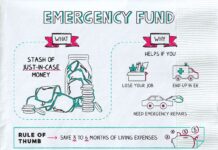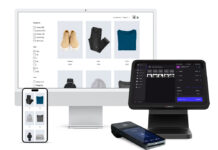Hoops players are kings of the hard court but they’re savvy businessmen too. After all, the sports industry is a humongous business, with the NBA recently agreeing to a massive $24 billion television contract.
At the forefront of successful basketball-players-turned-businessmen are Michael Jordan and Lebron James. Take away the G.O.A.T. debate and their on-court exploits, and you’ll see two gentlemen in business suits.
As per Forbes, Michael Jordan’s stake in the NBA’s Charlotte Hornets is now valued at $780 million, more than 5x than when he bought 90% of it at the time the franchise was estimated at $175 million. Meanwhile, his cash cows include that of Nike (generating $3B revenue from his Jordan Brand), underwear brand Hanes, sports drink leader Gatorade, and Upper Deck.
The 6x NBA champion boasts a $1.39B real time net worth as per Forbes.
Below are three scenarios where basketball players made decisions like savvy businessmen. These are tips that are somewhat swept under the rug, but can work wonders for you as a budding entrepreneur.
#1: Lebron James’ wait-and-see strategy
What would you do if you’re an 18-year-old high school student with no professional experience, and you’re given $10 million upfront by a company?
The only catch is that you aren’t allowed to hear any more offers from other interested parties. Will you be blinded by that chunky paycheck, or will you resist the offer, preferring to hear pitches from others?
Lebron James made a ‘brilliant business decision’ by leaving the money offered by Reebok on the table. He could’ve easily cashed in $10M, but James knew better.
He believed that if Reebok was willing to offer him $10M right off the bat, there’s an absolute chance that other brands such as Nike and Adidas will make counter-offers.
James waited, and it was really worth it as his 18-year-old version agreed to a $90M shoe endorsement from Nike, the first of the many deals that led to him signing a lifetime deal with the brand for $1B.
As a businessman, do the same. Don’t award your products, services, or idea to the first bidder. Know the exact value of your goods, and if it’s highly coveted by a certain group of retailers because of its profitability potential.
Like James did, wait. Give other retailers, bulk vendors, and retail outlets a chance to send their pitches. It’s not an absolute guarantee that there’ll be someone who’ll blow your mind financially. Their offer can be the same, but with bonuses like co-branding or co-marketing opportunities.
Wait and see.
Also Read: Top 10 Jobs to get Started with Your Career
#2: Andre Iguodala’s perfectly executed negotiation with the Warriors
Iguodala was one of the veterans that spearheaded Golden State’s success in the recent years. With him, the team won 2 championships in 3 NBA Finals appearances.
He threatened (through actions) to leave the Warriors when he was offered a measly $12-$14M salary per year for three years. He appeared to hearing pitches from other NBA teams, and was very close with signing with the Houston Rockets.
At the end of the day, Iggy was able to get the salary he bargained for ($48M for years) because he knows and values what he brings to his Golden State squad.
As an entrepreneur, you should never sell your products at a bargain price just to beat the competition. Your initiative should be to sell at the market price, or slightly above it. If you’re pretty confident with the robustness and usability of your product, you wouldn’t be so worried about it being unsaleable.
Instead, focus on marketing. Aim to reach a wide consumer base, and explore untapped communities of potential consumers. Paying for ad banners or copywriters can be worthy investments, when done right.
And like Iguodala, believe that nothing can be resolve with good negotiations. For instance, if you strongly believe that your retailers have long profited from your products, then have the courage to inform them that you’re putting additional mark-ups.
Convince them and sell the benefits for both of you, like the mark-up being used to better the quality of your goods and to reflect inflationary prices.
You’re likely to win the negotiation, especially when those retailers highly depend on you as the main supplier. All you need to do is ask.
#3: Derrick Rose’ $2.1 million contract with the Cavaliers
$2.1 million for salary for a former NBA MVP? It sounds absurd for almost everybody.
But Derrick Rose has never reached the NBA Finals, so being affiliated with Lebron James and playing second (or third, fourth) fiddle next to him seemed okay. Rose wanted success, and that success can be achieved through the help of some folks.
As a businessman, tap the unlimited potential of networking. The more people and connections you know, the closer you get to sales leads, high-paying deals, etc.
Work on your personality first. Strive to be the initiators of conversations during meetings and conferences, rather than waiting for other business people to approach you. This way, you’ll be able to position yourself and your brand well.
Even if you believe you’re just a small fry in a circle of savvy and rich business people, be conversational. Share your ideas and stand up for your products. These rich guys love folks who are enthusiastic and sincere in their craft.
Accept calling cards, but send out some too. Always make follow-ups through e-mail. In other words, don’t make them forget you. You’ll be surprised one day at how many referrals and sales leads those guys provided you for free. Word of mouth is just the best.
As a wrap-up, businessmen are the same with basketball players, with how they negotiate deals and contracts. Both want to obtain only the best, which is respective of their abilities and product specifics. At the end of the day, hoops players shoot the ball and businessmen focus on the business bottom-line.











